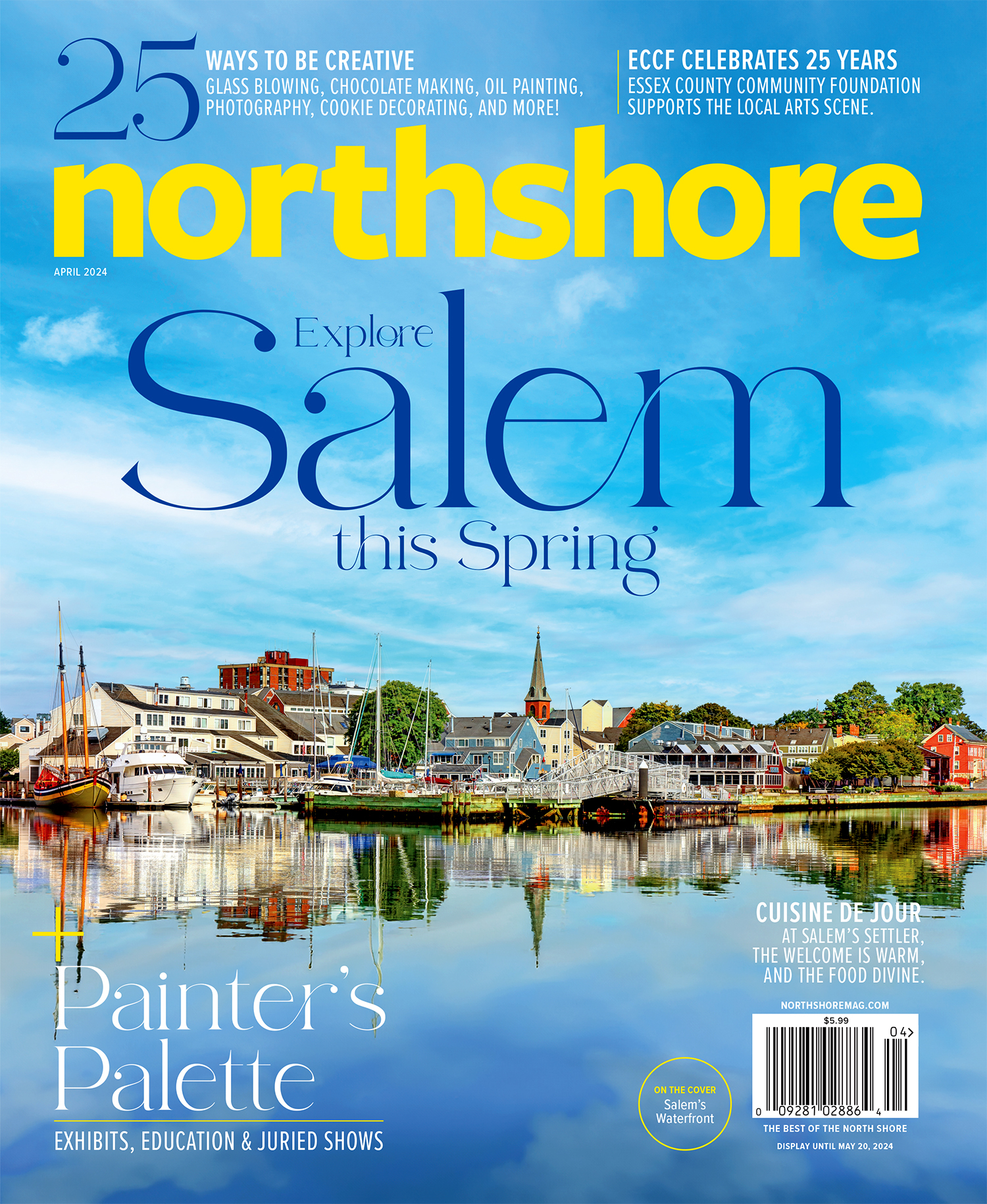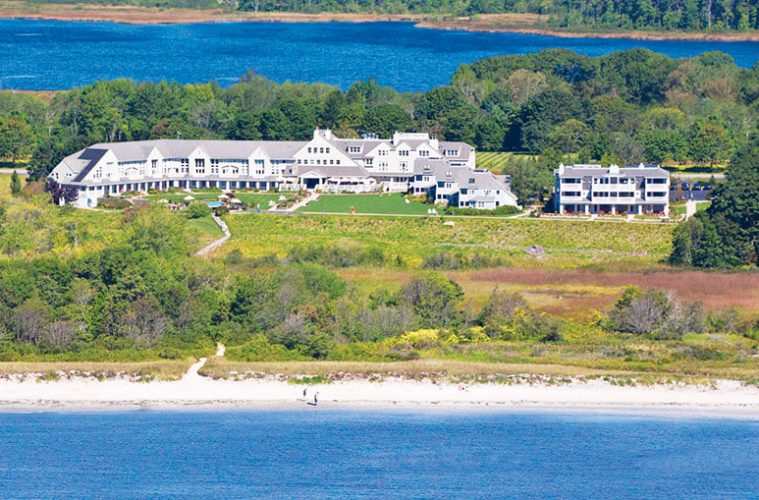Early risers at Inn by the Sea in Cape Elizabeth, Maine, may be rewarded by the sight of a shy New England cottontail sneaking out of its hole at dawn to nibble tendrils just starting to sprout. While the early spring landscape appears still and stark from a distance, look closely and signs of life abound—from exotic birds passing through on their return from southern vacations to the hardy piping plovers, feathers puffed up, dancing in the sand on Crescent Beach. Late winter may be one of the best times to observe wildlife at Inn by the Sea—visitors who can’t catch a glimpse of the notoriously bashful cottontail may identify its tracks in fresh snow with the help of the inn’s well-trained staff.
Just a few short years ago, the scrub and meadow that separate the inn from the alluring sandy curve of Crescent Beach was a dead zone from an environmental perspective, providing little refuge for one of the largest colonies in Maine of rapidly disappearing cottontails and a wealth of other special and endangered animals that call the coastal area home. Invasive species like bamboo and Japanese knot-weed had choked out every native plant, leaving nothing for birds and butterflies to eat and no place for rabbits to hide and forage. In partnership with state and federal wildlife protection agencies, the inn invested $100,000 and countless hours spent replacing weeds with native plants—funded by the luxury property’s savings from its linen reuse program. Staff now work with wardens from Maine’s Department of Inland Fisheries and Wildlife to maintain the “rabitat” and provide tracking data.
The landscape is the most visible nod to Inn by the Sea’s dedication to sustainability. The silver Leadership in Energy and Enviromental Design (LEED)-certified property uses recycled materials wherever possible, including recycled sheetrock for new construction, and renewable energy throughout the property. But none of this sacrifices luxury—guest rooms and common areas are beautifully appointed, almost half the rooms and suites have fireplaces, and there is a serene water view from nearly every window.
The restaurant on the property, Sea Glass, maintains the same balance between indulgence and sustainability. As would be expected at a high-end restaurant in Vacationland, lobster plays a starring role at breakfast, lunch, and dinner. But many other common fish are nowhere to be found on the menu, replaced with unfamiliar names like hake and dogfish—sea creatures that conservation experts and local fishermen agree are abundant and sustainably harvested.
That connection with coastal Maine is echoed in the property’s serene spa. Sea salt and Maine mud are used liberally for tranquil and therapeutic treatments, and the property’s hot stone massage relaxes knotted muscles with warmed rocks collected from the area’s Casco Bay beaches.
Pampering isn’t limited to people—management welcomes pooches to stay in any of the guest accommodations, complete with house-made dog biscuits at turndown and a special canine room service menu, including “Doggy Gumbo” for dinner and K-9 ice cream—soy milk honey gelato with dog biscuit crumbs—for dessert. The hotel even offers in-room dog massage, given by the same well-trained staff that provides the property’s top-notch spa services. While dogs can’t dine in Sea Glass restaurant, they are welcome in the lounge, where some indulgent owners even let their pups lap up a bowl of beer. The property is so pooch-friendly that for the last two weeks of October every year, the outdoor pool is open for dogs only.
At this time of year however, with the pool closed until Memorial Day, guests are more likely found walking the boardwalk or gather- ing around the nightly fire pit, with or without Fido. And when the wind whips off the ocean, many retire before a cozy fire. innbythesea.com

